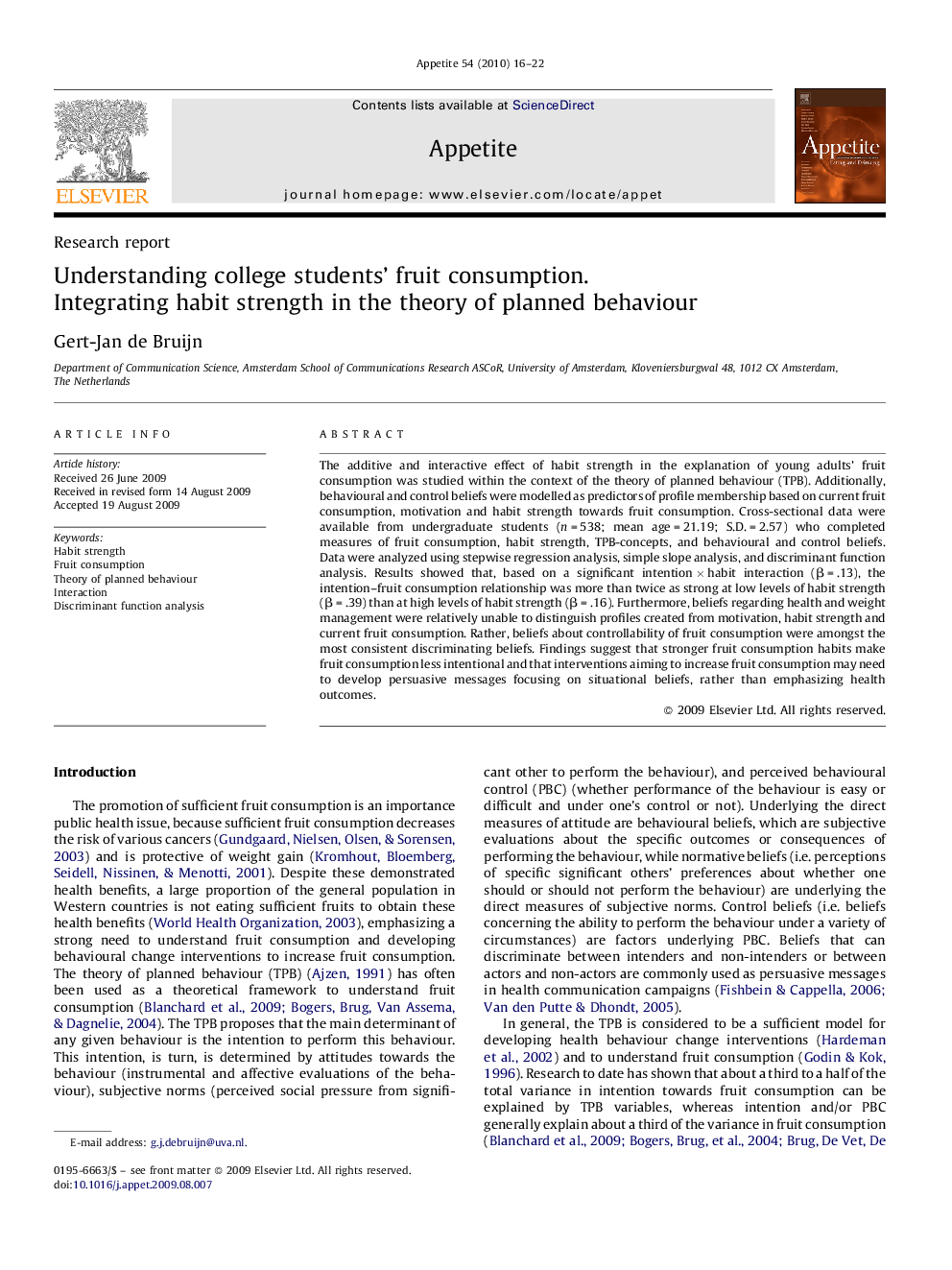| Article ID | Journal | Published Year | Pages | File Type |
|---|---|---|---|---|
| 940933 | Appetite | 2010 | 7 Pages |
The additive and interactive effect of habit strength in the explanation of young adults’ fruit consumption was studied within the context of the theory of planned behaviour (TPB). Additionally, behavioural and control beliefs were modelled as predictors of profile membership based on current fruit consumption, motivation and habit strength towards fruit consumption. Cross-sectional data were available from undergraduate students (n = 538; mean age = 21.19; S.D. = 2.57) who completed measures of fruit consumption, habit strength, TPB-concepts, and behavioural and control beliefs. Data were analyzed using stepwise regression analysis, simple slope analysis, and discriminant function analysis. Results showed that, based on a significant intention × habit interaction (β = .13), the intention–fruit consumption relationship was more than twice as strong at low levels of habit strength (β = .39) than at high levels of habit strength (β = .16). Furthermore, beliefs regarding health and weight management were relatively unable to distinguish profiles created from motivation, habit strength and current fruit consumption. Rather, beliefs about controllability of fruit consumption were amongst the most consistent discriminating beliefs. Findings suggest that stronger fruit consumption habits make fruit consumption less intentional and that interventions aiming to increase fruit consumption may need to develop persuasive messages focusing on situational beliefs, rather than emphasizing health outcomes.
